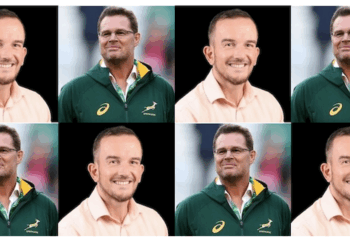It seems obvious that when studying the media, the media needs to be involved and should learn from the results. But there is a real disconnect between the academic and profession, says Michelle Solomon.
In the study of journalism and the media, scholars are often based exclusively in academic environments and the so-called ’ivory tower’ of academia. While we may speak of the importance of research for the advancement and development of journalism, often the actual practitioners who ’live’ the industry are forgotten.
The potential contribution of working journalists in building knowledge about the industry is sometimes ignored in research. Also, it is a real problem that few journalists know about or even acknowledge the research done about their industry. This casts doubt on the usefulness of the research in newsrooms, as the industry doesn’t critically engage with the work produced by the academics.
In May last year, Professor Anthea Garman, Rhodes University professor and editor of the Rhodes Journalism Review (the Review), sought to investigate this conundrum by engaging with media professionals on their use and perceived usefulness of academic research.
In order to investigate the perceived gap between scholars and practitioners, the researchers interviewed several senior journalists, editors, directors of media research and training organisations and the deputy ombudsman of the South African Press Council.
The findings highlighted the vast chasm between scholars and journalists. Garman said that it was “extremely depressing” to see not only how little value journalists give to academic writing about their profession, but also “to see how little worth they accord research, theory and thinking”. She also noted that it was those organisations operating on the “fringe” of the journalism profession that valued academic research in this area, including journalism monitors like the Press Ombudsman and Media Monitoring Africa (MMA).
Garman also critiqued the call from interviewees for “timeliness” in academic research, and criticised its “tyranny” not only over news production, but also academic research. “This is evident in the idea that a constitutional expert with a blog ‘leads’ the reaction, and that researchers not functioning in this way daily don’t lead thought in any way at all,” Garman explained.
Interviewees were asked whether academic research was at all used to supplement their work, and the dominant response was “very little”. This group included a senior political journalist, as well as senior editorial staff at three leading news platforms. Of the media professionals interviewed, only one journalist – editor of the Mail & Guardian Online, Chris Roper – responded that he does, in fact, use academic research “all the time, every day”.
Roper explained that he used open source material to access academic research on the internet. This raised issues regarding the accessibility of journals for practitioners, and one interviewee said he had difficulty finding the journals. “I can’t lay my hands on them… not much work in this vein reaches our office,” explained the deputy ombudsman, Dr Johan Retief.
The director of MMA, William Bird, added that journals should be made freely available, and lamented the high costs of accessing academic research about the media industry. “You can’t afford to spend a few hundred euros on a subscription,” Bird said, and added: “We’re lucky we have a good relationship with quite a few academics, otherwise you don’t have any idea what they are doing, really.”
Branko Brkic, editor of the Daily Maverick and iMaverick news platforms, supported this, saying that reading academic research was too time-consuming. “It’s not exactly designed for friendly use,” he explained.
Interviewees also commented on the inaccessibility of academic language and style for non-scholar readers, and former news editor of the Cape Argus, Natasha Joseph, highlighted this obstacle, especially in a time-sensitive and deadline-driven newsroom. “You’re in the business of writing in plain, simple English and working under time pressures trying to dilute things down into a more understandable language. You can’t suddenly start asking academics to stop writing in a particular style, but time is a big issue,” she explained.
Editor of City Press, Ferial Haffajee, said she largely found academic research “too ideologically height-bound; enslaved to a particular ideological position”. She added that she felt some scholars lacked the professional experience of working in a newsroom, and this limited the usefulness of their research. “I find too often there is a massive disjunction, so some may be extremely clever but because they’ve never worked in the media, I find that their stuff is too theoretical, and difficult to understand and implement,” Haffajee explained.
Garman pointed out one issue of particular interest, however – the demand from journalists for academic work to be available online. “The online environment has so infiltrated journalistic production processes that the expectation for online availability is very high, and the integration with the tools journalists use every day is expected of all sorts of information dissemination, including now of academic work,” Garman explained.
Director of the Institute for the Advancement of Journalism, Michael Schmidt, said the “more searchable and online, the better”, and proposed that academics market their work through online news aggregators.
Charmain Naidoo, editor of AvusaLive, advocated the use of social networking to market and disseminate information generated by universities and academic institutions.
In light of the debates revealed in the interviews, Garman proposes that a more constructive relationship between journalism practitioners and scholars may be realised. To do this, she suggests creating shared interests in research projects and their outcomes whether or not journalists see the value of theoretical research.
“We need to think more cleverly about how to draw the journalism education-research-newsroom triangle, with journals as the vehicles that reach all those interested and concerned,” Garman says.
Michelle Solomon is a masters student at Rhodes University, and assisted Professor Garman by conducting interviews with South African media professionals. Follow her on Twitter @mishsolomon
This story was first published in The Media magazine.














